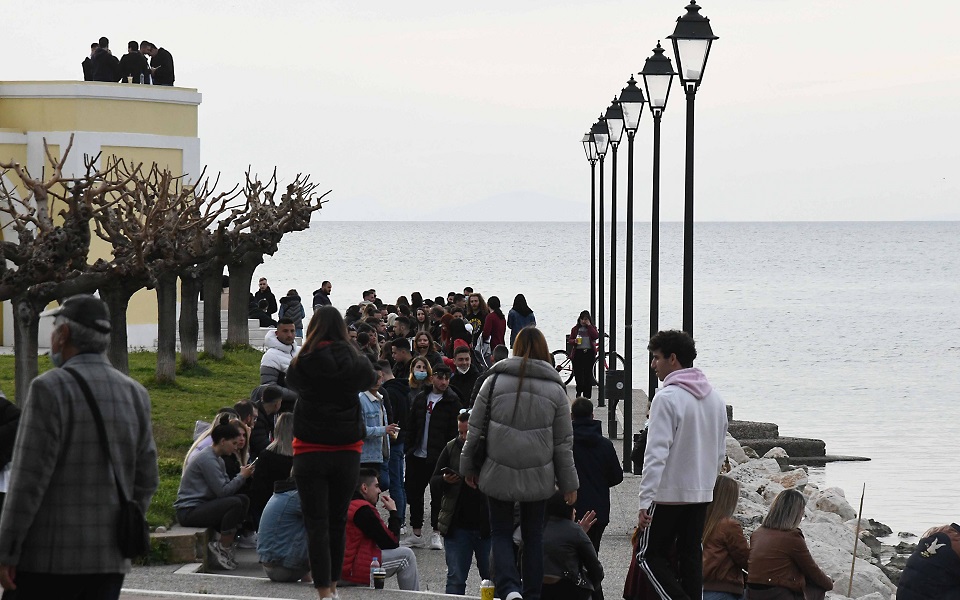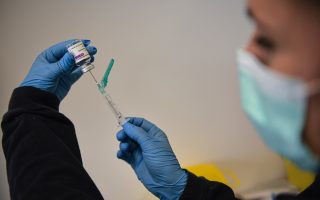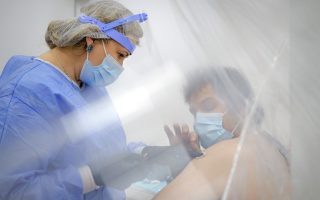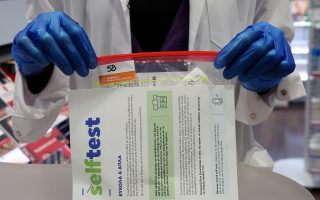Fears of surge in Thessaloniki, Kozani and Achaia, as capital also struggles

Health experts advising the Greek government on its coronavirus policy are closely monitoring trends in the northern cities of Thessaloniki and Kozani, as well as in the western region of Achaia, fearing a surge of new cases amid growing signs of public fatigue with lockdown restrictions.
According to figures released on Thursday by the National Organization for Public Health (EODY), these three areas accounted, respectively, for 435, 52 and 117 of a total of 3,228 new Covid-19 cases across the country. The numbers put the infection ratio in Thessaloniki at 39.2 per 100,000 residents, in Kozani at 34.6/100,000 and in Achaia at 37.7/100,000. The viral load makes it unlikely that the shutdown of retail commerce in either of the three areas will be lifted next week, as it was last Monday in the rest of the country, much to the dismay of local shop owners, who are demanding to be allowed to reopen.
In Thessaloniki in particular, regular wastewater analyses have shown a steady rise in the prevalence of the SARS-CoV-2 virus, reaching levels last seen in November, when an explosion in cases put the northern port city at the epicenter of the pandemic’s second wave.
According to EODY, the viral load in Thessaloniki’s wastewater rose 30% on Monday and Tuesday compared to a week before and 56% on a weekly basis in the period between March 29 and April 3.
The Greek capital is not faring well either, however, with Thursday’s bulletin showing that the Attica region continued to account for around half of the country’s total cases, at 1,578. Western Attica, the western suburbs of Athens and the port city of Piraeus are causing the most concern, with 72.2, 50.3 and 54.6 new infections per 100,000 residents respectively.
Pella and Larissa are also showing worrying trends, with cases there at 39.4 and 31.3 per 100,000 residents on Thursday.
Apart from fears of the death toll rising even further – from an average of 63.4 fatalities a day in March 25-31 compared with 56.7 in the previous report of the government’s Covid Observatory – authorities are also concerned about the impact of rising cases, hospitalizations and intubations on the already stretched public health system.
According to the latest EODY bulletin, occupancy at Greece’s hospitals reached 84% at intensive care Covid wards and 57.5% are regular coronavirus wards on Thursday, while hospital admissions came to 595 against a seven-day average of 522 a day.





